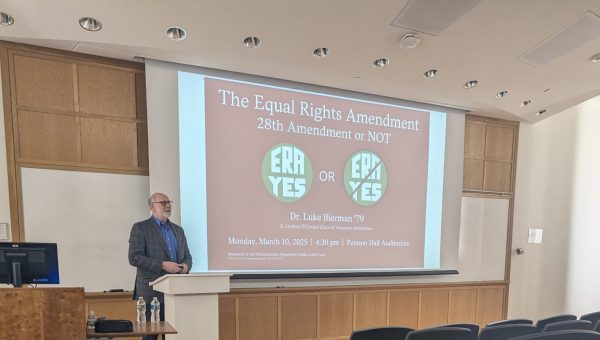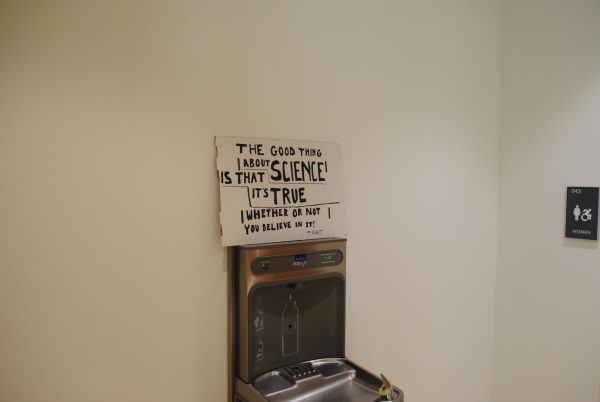Breaking Ranks

College rankings are some of the most utilized and most talked-about resources available to students searching for the right school. Recently, though, there has been controversy surrounding the formula for college rankings, especially around the most popular rankings: those of U.S. News & World Report.
Presidents from 64 colleges have signed a letter drafted by an organization known as the Education Conservancy, which characterizes the ranking system as misleading. The letter calls for presidents of member schools not to fill out the U.S. News reputational survey, in which college presidents give their subjective opinions of other colleges. Presidents who sign this letter pledge not to use college rankings to promote their respective schools or to affirm their school’s value.
President of the University and Professor of Philosophy and Religion Rebecca Chopp did not sign this letter. Instead, she and presidents from 17 other top liberal arts colleges recently drafted and signed a different statement, which President Chopp calls “a temperate response.”
In the statement, Chopp and others do not denounce the U.S. News ranking system outright. They express concern over the “inevitable biases in any single ranking formula” and posit that rankings can “contribute to [the admissions] frenzy and to a false sense that educational success or fit can be ranked in a single numerical list.” The statement goes on to suggest that “ranking agencies should maintain a degree of distance to ensure objectivity.”
In addition to Colgate, the other schools represented in the statement are Amherst College, Bates College, Bowdoin College, Bryn Mawr College, Carleton College, Colby College, Grinnell College, Hamilton College, Haverford College, Middlebury College, Pomona College, Swarthmore College, Trinity College, Vassar College, Washington and Lee University, Wesleyan University and Williams College.
“Rankings play a very useful role in college searches,” President Chopp said, “But they can’t capture the full essence of the liberal arts perspective.”
One of her concerns with the U.S. News rankings is that a lot of importance is placed on the wealth and endowment of the school.
“Of course wealthier colleges are going to have smaller class sizes,” Chopp said. “The [ranking] formula is indebted to the endowment of the school, which is not a problem as long as students realize it.” She hopes to continue to work with agencies like U.S. News to improve their ranking formulas to be able to better represent colleges as whole entities.
Chopp said that this statement does not mean big changes in Colgate policy regarding rankings, since the University does not promote rank results.
The goal of this statement is to make the college ranking process more transparent so that students who are making the important decision of where to go can have all relevant information available to them. Chopp is especially interested in promoting what she calls “the democracy of information.” That is, letting everyone interested in information about the college have that information at hand to make a better-informed decision.
“Students ought to look at all the rankings and then do their homework,” Chopp said, referring to her hope that students will use their critical thinking skills to discern the right college for them using all available information.





